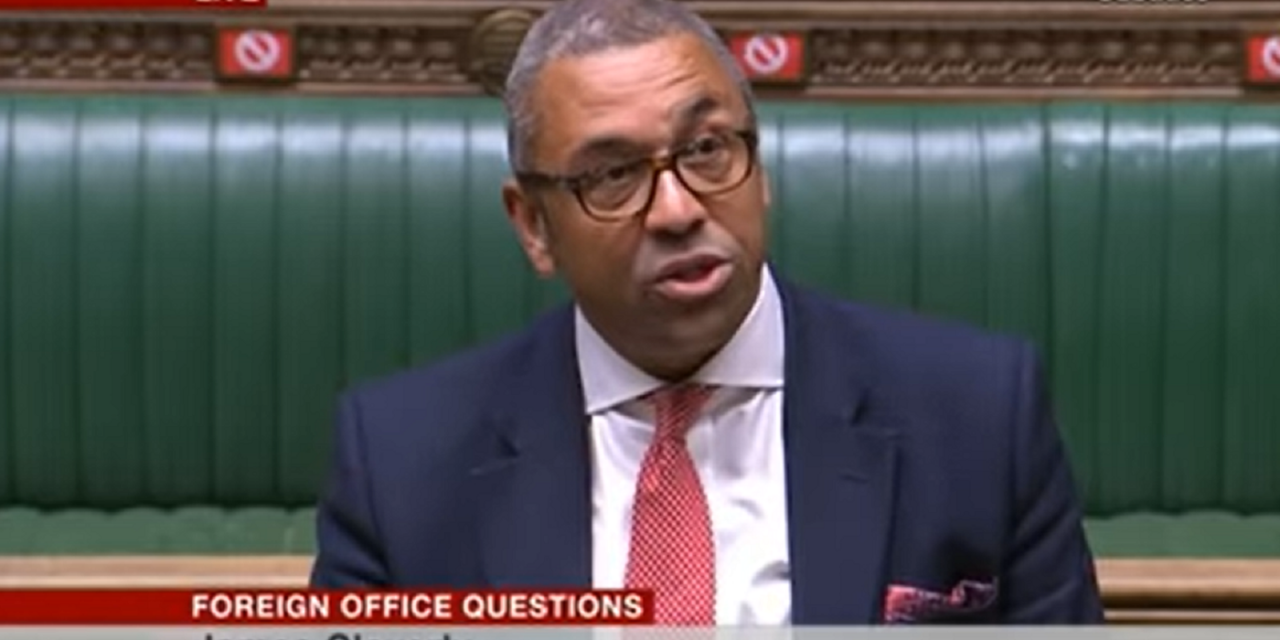The UK Foreign Secretary James Cleverly has vowed to investigate reports that scientists at British universities have helped Iran develop technology that can be used in its military drone programme.
Speaking in parliament during Foreign Secretary’s questions, James Cleverly confirmed that the government was looking into reports of staff at 11 British universities producing at least 16 studies with potential Iranian military applications.
Bob Blackman, MP for Harrow East, asked the foreign secretary what steps the government was taking to ensure that Iran could not become a country with nuclear weapons.
He said: “The foreign secretary will be aware that the regime is boasting that their hypersonic missiles can hit Tel Aviv in 400 seconds.
“The JCPOA restrictions end in October, and there are suggestions that British universities have been involved in research, leading to drones that are attacking Ukrainian training positions from Russia.”
Responding, Cleverly confirmed that the government was “looking into” the universities connection and added: “We continue to stand firm on our commitment that Iran cannot become a nuclear weapons state and we will ensure that as sunset clauses within the JCPOA arrive, that we take evolved measures to ensure that is the case.”
The foreign secretary @JamesCleverly has pledged to investigate after the JC revealed that scientists at British universities have helped Iran develop technology that can be used in its drone programme. pic.twitter.com/iqkudiZEP2
— The Jewish Chronicle (@JewishChron) June 13, 2023
Responding to the report made by the Jewish Chronicle this week and last, Member of Parliament David Davis wrote in the Jewish Chronicle:
“There is simply no point in having a sanctions regime unless it is enforced, and allowing Iran to benefit from access to members of elite British institutions and their high-quality laboratories to research topics of military use is an error that may one day haunt us.”
“Not only is Iran a constant source of menace in the Middle East, with its proxies such as the Houthis in Yemen and Hizbollah in Lebanon inflicting frequent damage on the UK’s allies, its relationship with Russia, Europe’s most aggressive power, grows closer by the month,” he continued.
“It is far from inconceivable that the technology developed as a result of collaborations such as those exposed by the JC may one day lead to the injury or death of British soldiers or civilians. They have to be stopped immediately.”
During Foreign Secretary’s questions, Cleverly was reminded of the recently signed roadmap for bilateral relations with Israel, signed by himself and his Israeli counterpart, which Chipping Barnet MP Theresa Villiers said committed the UK to “working closely with Israel on the threat caused by Iran.”
Villiers then asked whether the agreement included “proscription of the IRGC” by the government.
Cleverly responded during Tuesday’s foreign questions session in the Commons saying:”I’ve spoken regularly about the process by which proscriptions are made.
“We don’t routinely speculate on future proscriptions. Our relationship with Israel is a key one and an important one.”
In another question put to the minister by the Tory MP Greg Smith, Cleverly was asked about the Mac 15 missile unveiled and “widely celebrated” by the IRGC in Tehran.
Last week Iran’s state television said the missile — called Fattah, or “Conqueror” in Farsi — has a range of up to 870 miles, and claimed, without evidence, it could pass through any regional missile defence system.
Cleverly responded saying:”We continue to work closely particularly with the E3, the United States of America and our partners in the region to dissuade Iran from increasing its militaristic presence.
“We continue to maintain our policy that they should never be a nuclear weapons state.”
Cleverly added “we also keep a very close eye on other weapons technology development.”
Source: Jewish Chronicle & Jewish News










